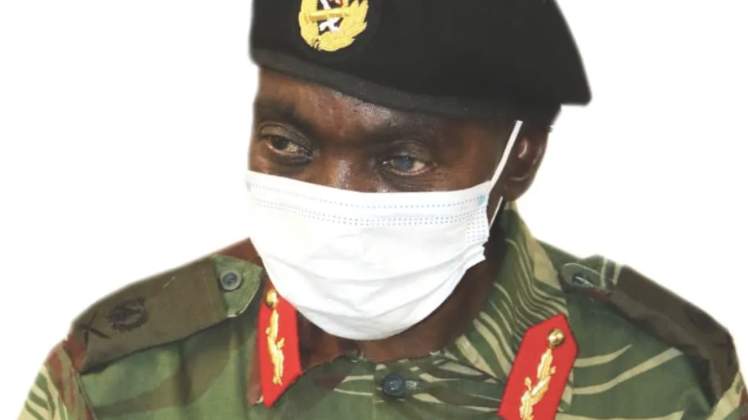THE late former Zimbabwe National Army (ZNA) top official, Major General (Retired) Sikhulile Simpson Nyathi was implicated in the illegal plunder of Democratic Republic of Congo (DRC) natural resources worth over US$ 5 billion
Nyathi was implicated alongside top army commanders including President Emmerson Mnangagwa.
Nyathi, who passed away aged 61 at an army hospital, was buried at the National Heroes Acre on Monday after he was declared a national hero. There are reports that Nyathi had initially been denied a hero status.
In 2002, a United Nations report implicated Nyathi over his involvement in the plunder of DRC resources along with other army commanders through Operation Sovereign Legitimacy (Osleg), a company linked to the Zimbabwe Defence Forces.
Osleg went into a joint venture with a Congolese company during the height of its military engagement in the Great Lakes to form Cosleg.
The UN-commissioned report on the plunder of DRC resources named Cosleg as one of the companies involved in underhand dealings in the mineral-rich country.
Mnangagwa was also mentioned in the report as the brains behind the Congo trade and looting of that country’s resources.
A UN Security Council resolution of 2002 noted with concern that the plundering of the natural resources in the DRC was one of the main elements fuelling the conflict in the region.
The Security Council resolution stressed the importance of following up on the independent findings of the panel of investigators regarding the link between the illegal exploitation of the natural resources of the DRC and the continuation of the conflict.
The Security Council demanded that all states concerned should take immediate steps to end the illegal activities.
The late Brigadier General Sibusiso Busi Moyo was listed as Director-General of Cosleg, former Air Commodore Mike Tichafa Karakadzai as his deputy and the late Nyathi as the Director of defence policy for the company.
“Although troops of the ZDF have been a major guarantor of the security of the Government of the Democratic Republic of the Congo against regional rivals, its senior officers have enriched themselves from the country’s mineral assets under the pretext of arrangements set up to repay Zimbabwe for military services,” the 2000 UN report reads in part.
“Now ZDF is establishing new companies and contractual arrangements to defend its economic interests in the longer term should there be a complete withdrawal of ZDF troops. The elite network of Congolese and Zimbabwean political, military and commercial interests seeks to maintain its grip on the main mineral resources – diamonds, cobalt, copper, and germanium – of the Government-controlled area.
“This network has transferred ownership of at least US$ 5 billion of assets from the State mining sector to private companies under its control in the past three years with no compensation or benefit for the State treasury of the Democratic Republic of the Congo.”
The DRC war, also known as the Great African War, which drew as many as nine African countries and an estimated 25 armed groups, officially ended in July 2003 when the transitional government took over.
Late President Robert Mugabe deployed the ZNA to the DRC without seeking Parliamentary approval.
The ZNA suffered heavy material losses, many lives were lost while the economy also took a beating from the unbudgeted military expenditure in the war.
“This network benefits from instability in the Democratic Republic of the Congo. Its representatives in the Kinshasa Government and the ZDF have fuelled instability by supporting armed groups opposing Rwanda and Burundi,” the report adds.
“Even if present moves towards peace lead to a complete withdrawal of Zimbabwean forces, the network’s grip on the richest mineral assets of the Democratic Republic of the Congo and related businesses will remain.
“The key strategist for the Zimbabwean branch of the elite network is the Speaker of the Parliament and former National Security Minister, Emmerson Dambudzo Mnangagwa.”

